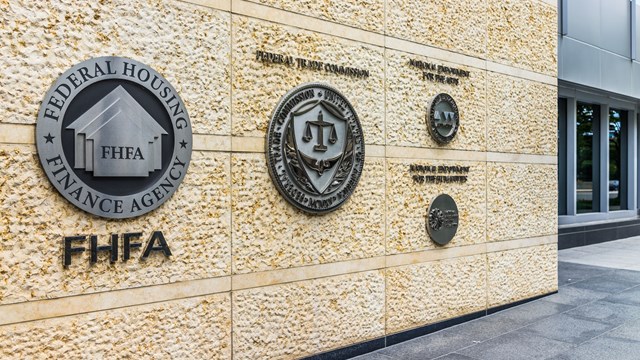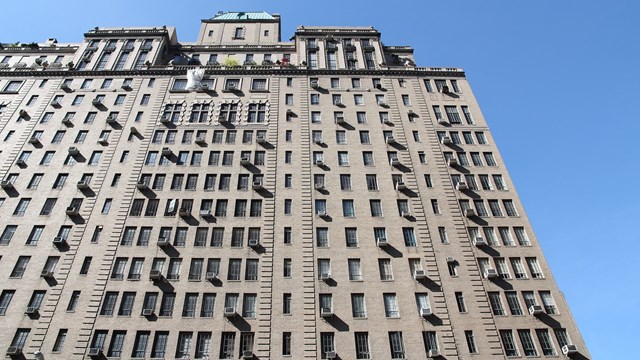When a conversion sponsor fails to meet his financial obligations, the result can be a default on the underlying mortgage, one of the most destructive catastrophes to strike a co-op. Even a default on the sponsor's maintenance obligations can put a co-op in dire straits. Although there is no ironclad method to protect a building from a sponsor default, a vigilant board of directors can look for early warning signs of a coming onslaught and take precautions accordingly.
The odds against an unanticipated default can be substantially reduced if the board of directors works closely with its attorney, accountant and managing agent to implement a system of routine financial check-ups on the sponsor. Just as the managing agent conducts regularly scheduled inspections of the building structure and systems, the board should implement a program that will reveal any early signs of financial difficulty on the part of the sponsor. Such a checklist, if reviewed at least once a year, will alert the board to any potential problems looming on the horizon.
What to Look At
The most important source of information is the financial disclosure amendment, a document that must be filed annually with the Attorney General's office by a sponsor or holder of unsold shares owning more than ten percent of the shares of a housing corporation. This amendment is to be presented, via first class mail, to everyone residing in the building including board members, share-holders and occupants of unsold apartments. According to the Attorney General's office, the following information is required to be included in the amendment:
- (a)the number of unsold shares remaining;
- (b)aggregate monthly mainte-nance payments for the unsold apartments;
- (c)aggregate monthly rental received from the occupants of the unsold apartments;
- (d)a list of all unsold shares which have been pledged as collateral for loan(s) or otherwise represent security for financial arrangements;
- (e)in the event that unsold shares have been pledged as collateral, the identity and address of the lender(s); the maturity date of the loan(s) and payment obligations under the loan(s); and
- (f)schedule of all other cooperatives and condominiums in which the sponsor or holder of unsold shares is a principal owning more than ten percent of the shares or units.
Examine Sponsor's Cash Flow
The most important subject for review when determining the financial viability of the sponsor is his cash flow. This can be ascertained by evaluating how much the sponsor pays out in maintenance and debt service versus the income generated through rentals and apartment sales. If the rent received is less than the maintenance payable, there is an obvious concern about whether the sponsor's pockets are deep enough to continue covering the monthly shortfall. The proceeds from the sale of sponsor-owned apartments can go far to offset such a negative cash flow situation, but only if the units are selling. When reviewing the sponsor's financial disclosure amendment, compare the total number of unsold apartments from one year's statement to the next. Are the apartments being sold at a reasonable rate? An active sales program by the sponsor at market prices can alleviate or eliminate a negative cash flow situation. If the sponsor is carrying a lot of debt, even high rents and active sales may not be enough to cover his monthly expenses. So it's important to look at how much debt the sponsor has, what the monthly payments are and whether he has pledged his co-op shares as collateral on any loans.
Other Factors
Board members must also consider that the sponsor may have an interest in other cooperatives or condominiums. It is quite possible that the board's attorney, accountant and/or managing agent represents other buildings and is aware of a potential or existing default by the sponsor. So be sure to ask your professionals if they know of any financial problems the sponsor is having. The information is not privileged, so they can share it with the board.
The board of directors may also want to obtain a credit investigation report from a responsible organization. This can be done by the same type of company that conducts such investigations on prospective purchasers. In addition, the board's attorney can obtain a litigation report and have a lien search conducted. The litigation report will contain all relevant information about cases in which the sponsor may be a plaintiff or defendant. If an in-depth investigation is required, the corporate attorney may obtain photocopies of the pleadings in the court file. A lien search, similar to that conducted during a credit investigation of a prospective buyer, can also be obtained by the board's attorney.
Don't Ignore Rumors
Rumors within the real estate community are worth reviewing. Publications such as The New York Times, The Wall Street Journal and Crain's regularly publish a section devoted to the real estate market. Such articles may prove to be important sources of information and the time devoted to tracking them down may produce results.
Any building that has a significant sponsor presence can become a victim of sponsor default. Many buildings get their first inkling that there is a problem when the bank sends them a foreclosure notice. Don't let this happen to your building. Stay on top of the sponsor by implementing an on-going investigation into his finances and you'll protect residents from waking up one day to a very unwelcome surprise.







2 Comments
Leave a Comment